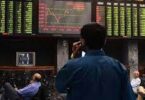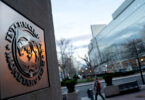F.P. Report
ISLAMABAD: The All Pakistan Business Forum (APBF) on Saturday stressed the need for taking serious measures, as the rupee still continues to witness volatile trend in the process of trading against dollar and other major currencies, amidst the government securing the external financing requirements for the current fiscal year.
Moreover, the sharp increase in the policy rate would result in curbing demand to lower the pressure of imports on the current account, so the weak rupee is a question mark in present circumstances.
In a statement issued here, APBF President Syed Maaz Mahmood observed that besides increasing exports and controlling imports the government will have to take administrative measures, as a large demand of cash dollars are seen in the market.
He argued that this devaluation of the currency was dictated by the IMF through prior actions and it has nothing to do with macroeconomic fundamentals.
He said that there was a complete breakdown of economic policymaking, as the country’s fiscal policy had become subservient to monetary and exchange rate policies.
Maaz Mahmood said that the monetary tightening and exchange rate depreciation resulted in higher inflation, public debt and debt servicing. The empirical evidence showed that the one percent monetary tightening hiked the inflationary pressure by 1.3 percent in the case of Pakistan, he added.
He said that the US dollar continued to rise against the rupee, reaching a record high in interbank trade amidst growing current account deficit. The government needs to devise a strategy on war-footing to increase foreign investment in Pakistan so as to stop the upward trajectory of the dollar, he added.
The APBF President urged the government to control volatility of rupee against the US dollar, as the industrial revival and economic growth is not possible without stability of local currency. He said that the massive devaluation of currency fuelled inflationary pressures, adding that two major factors contributed to the price hike. First, the prices of food and commodities as well as fuel prices skyrocketed in the international market, and second, the depreciation of the exchange rate by 30 percent also led to higher inflation, he added.
He said that 10 percent devaluation of the currency raised the Consumer Price Index (CPI)-based inflation by 0.6 percent.
As a result, he said, the 30 percent depreciation resulted in increasing inflationary pressures by approximately two percent. This indicates that from the inflation standing at 11.5 percent on a monthly basis, nearly two percent comes through depreciation of the exchange rate, he pointed out.
Maaz Mahmood observed that having a clear policy to curb the volatility in exchange market, the central bank should be fully geared to act and monitor the movements more vigilantly and should be ahead of the curve as they have more information than an average market player. And being back in the IMF program amid the falling global commodity prices and full coverage of external financing needs, there is no basis for continuation of the high volatility in exchange rate, he added.
SBP has a stated policy to intervene wherever volatility needs to be curbed without changing the direction, which is now essentially market-determined. The policy is being pursued vigorously on the daily movement.
However, the volatility on weekly or monthly basis often turns out to be detrimental for businesses. Since the exchange rate is flexible, speculators jump in; they make quick bucks due to currency volatility. (INP)







